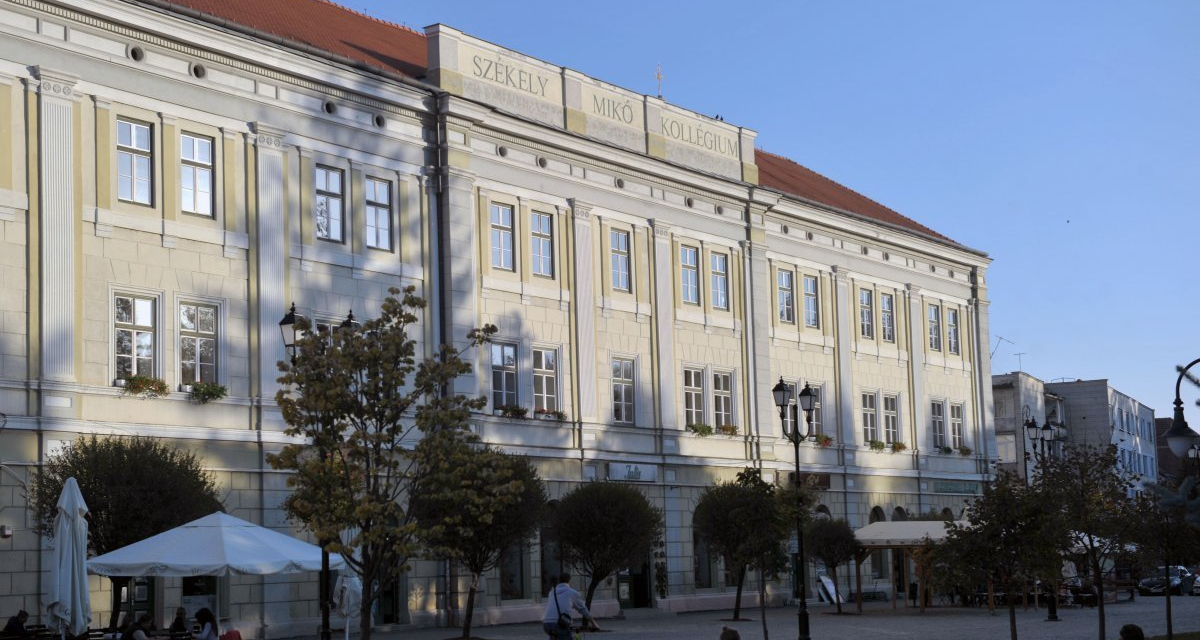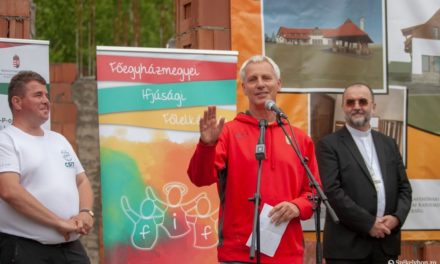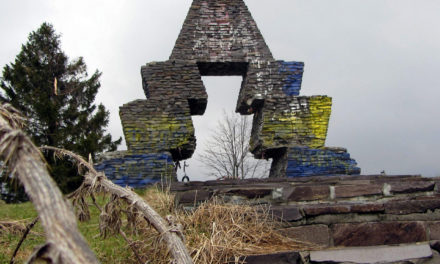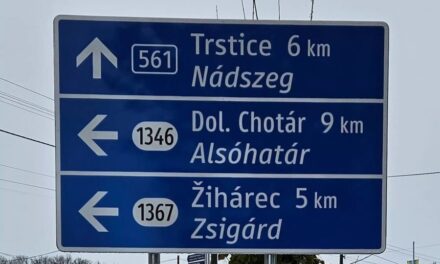The Romanian Supreme Court makes the restitution of the properties of historic Hungarian churches more difficult with an order taken out of thin air.
The new legal unity decision of the Bucharest Supreme Court of Cassation drastically complicates the restitution of the properties of the historical Hungarian churches in Transylvania. Pursuant to the mandatory provision for all Romanian courts, the churches must also directly prove - for example with a founding document - the ownership of their schools registered in the land register in the 19th century. And this is a document that did not even exist in the 19th century legal system.
In response to the lawsuits brought by the Transylvanian Reformed Church District in connection with the property restitution of the Gábor Bethlen College in Nagyenide, the Bucharest Supreme Court of Appeal issued an unprecedented decision in Romanian jurisprudence after the regime change in 1989.
For many years, the church district has been reclaiming - among other things - the teachers' apartments and other properties in Nagyneyed and Csombord belonging to the former property of the Nagyenyed college. In addition to the buildings of the college, the church district also managed to get back some teachers' apartments, but there were several negative court rulings.
Which is nonsense because there was a case when one of the properties on the same land register was returned by the court, but the other was not.
The Romanian Supreme Court of Justice and Cassation sought a solution to these divisive legal situations, but its new legal unity decision, published by the Supreme Court on Tuesday, poses significant obstacles to church restitution.
János Székely, lawyer, assistant professor at the law department of the Sapientia Transylvanian Hungarian University in Cluj, has been one of the legal representatives of the Transylvanian Reformed Church District in court cases for many years. He represents the Reformed Church in numerous real estate restitution proceedings, so he learned firsthand about the new decision in Bucharest, which binds the process of proving the ownership of church real estate to conditions that are difficult to implement. Since the Supreme Court found in several cases that in the case of church schools and other real estate - regardless of the name of the owner on the land register extract - the restitution belongs to the church district, but in other cases a contrary verdict was reached, the governing council of the Supreme Court asked the board to issue a decision.
"The essence of the decision is that in those cases where the Transylvanian Reformed Church District is not listed on the land register of the property, but some church school, church district ownership against the land register can only be proven in court by means of direct evidence. Which means that in the case of each and every property to be returned, we have to prove that the school listed in the land register was founded by the church district," lawyer János Székely explained to Krónika the essence of the recent legal decision in Bucharest.
According to the specialist, it has been proven in many court proceedings that the church district is the real owner, even though the school was listed in the land register. Reformed church schools belonged to the property of the church based on historical law. In the 19th century, land was registered in the name of the schools so that it was obvious to everyone what the purpose of the property was. Church schools were never separate legal entities: they were always the property of the church, the land registry entry justified their purpose as an educational institution.
The legal representative of the Reformed Church claims that the court decision outlining the new evidentiary procedure is unusual in the Romanian legal system in many ways.
The legal unity decisions so far were made due to non-uniform jurisprudence with the participation of several parties and resulting in conflicting judgments. In this case, however, there is only one plaintiff, the Transylvanian Reformed Church District, and the decision was made with reference to the legal claims of the historical Hungarian church.
The lawyer also complains that the Supreme Court does not actually ensure a uniform interpretation of the law, but gives instructions to the courts judging specific cases on how to evaluate the evidence in the respective cases.
The procedure is unusual because the laws on which the legal interpretation is based do not stipulate that the land register has special evidentiary power, against which only direct evidence is possible.
Interestingly, the new legal unity decision connects the application of the emergency government decree No. 2000/94 stating the restitution of church properties with the statutory decree No. 1938/115, which, however, was only applied from 1947.
The legislation introduced after World War II gives the land register a special status in contrast to the emergency government decree 94, which, according to the lawyer, raises several legal problems.
One of them is that the land registry of church schools took place mostly in the 19th century, and the law cannot be applied retroactively in Romania either.
In practice, the new provision means that the church district and all other churches must prove with written documents that a part of their assets - for example, real estate, land, etc. - assigned to the founding of the school. In today's terms: the school's charter from 1860, for example, must be presented.
János Székely considers this to be difficult to implement because the legal unity decision applies to today and not to the 19th century. One hundred and fifty years ago, the legal system of the time did not stipulate that if the church founded a school, it required a founding document and all the procedures that we are used to nowadays. That is why the new evidentiary procedure will make the ongoing and future restitution very difficult," concludes the lawyer from Cluj.
The new legal unity decision has not yet been dealt with in professional circles, but lawyers are meeting it "live" in the ongoing restitution lawsuits.
Since it is a legal document binding on all courts in Romania, it is expected that the otherwise smooth restitution process of church properties will become very difficult.
János Székely said that they will probably raise a constitutional objection against the provision, although Act No. 1992/47, which regulates the operation of the Constitutional Court, does not include the provision that the unified legal decisions of the Supreme Court and the Court of Cassation are subject to constitutionality norm control. The specialist sees that the Bucharest Supreme Court exceeded its constitutional authority regarding legal unity decisions: it did not only interpret law, but also determined how certain means of proof should be interpreted by the courts.
On the basis of which, only direct proof against the land register is possible.
The new Romanian interpretation of the law will increase the number of claimants to the European Court of Human Rights in Strasbourg. According to the expert, the Reformed Church has about 12-14 lawsuits awaiting its turn in Strasbourg, for which all legal remedies have already been exhausted in Romania. The Strasbourg process also takes a long time, but in many cases it remains the last opportunity for legal enforcement in restitution issues that have been stuck at home.
Cover image: Mikó Székely College in Sepsiszentgyörgy, which was once returned to the Reformed Church, has been renationalized
Source: László Beliczay/Székelyhon.ro












